
During pregnancy, proper nutrition is crucial for the health and well-being of both the mother and the fetus. A well-balanced diet is essential for the mother and the fetus to have the best possibility for a healthy happy pregnancy. To accomplish this there are certain foods that should be avoided to minimize the risk of potential complications. In this blog, we will explore some foods that should be avoided during pregnancy to increase the chances for a healthy experience for both mother and child.
Raw or undercooked beef, poultry, pork, and seafood should be avoided during pregnancy. These can be sources of harmful bacteria like salmonella, E. coli, and listeria, which can lead to serious foodborne illnesses. It is important to ensure that all meats are cooked thoroughly to kill any bacteria that may be present. Using a meat thermometer during cooking is the best way to ensure that your food has reached the proper temperature before being served.
Unpasteurized dairy products, such as certain soft cheeses (e.g., feta, brie, blue cheese), should be avoided as they may contain the bacteria listeria. Listeriosis, an infection caused by listeria, can lead to serious complications during pregnancy. Early symptoms of listeria infection include headache, fever, and fatigue. During pregnancy severe complications can lead to miscarriage, stillbirth, and premature birth. It is advisable to only eat pasteurized dairy products, which are safe to consume during pregnancy.
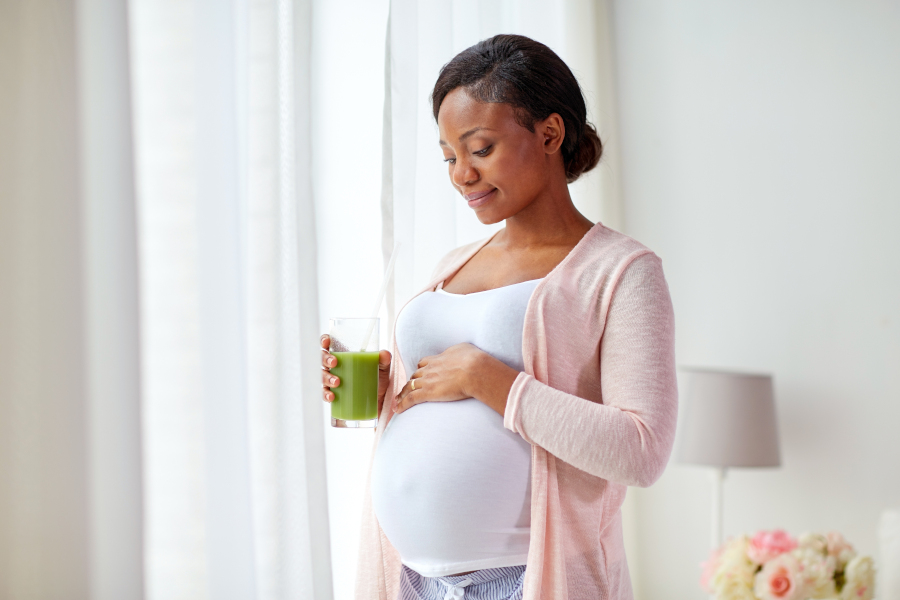
Raw or undercooked eggs pose a risk of salmonella contamination. During pregnancy it is important to avoid foods that may contain raw or partially cooked eggs, such as homemade Caesar salad dressing, homemade mayonnaise, cookie dough, and cake batter. Always choose pasteurized eggs to cook or bake with. When eating cooked eggs be sure that they are fully cooked to ensure safety.
Some types of seafood are known to contain high levels of mercury, which can be harmful to the developing nervous system of the baby. Avoid fish such as shark, swordfish, king mackerel, and orange roughy, which tend to have higher mercury levels. It is preferable to choose seafood containing lower levels of mercury such as salmon, shrimp, and catfish, among others. Most adults can eat up to three servings a week of fish with lower levels of mercury or one serving a week of those with medium levels of heavy metal.
Raw shellfish, including oysters, clams, and mussels, should be avoided during pregnancy due to the risk of bacterial and viral contamination. Shellfish should be cooked thoroughly to kill any bacteria or viruses present and reduce the risk of foodborne illnesses.
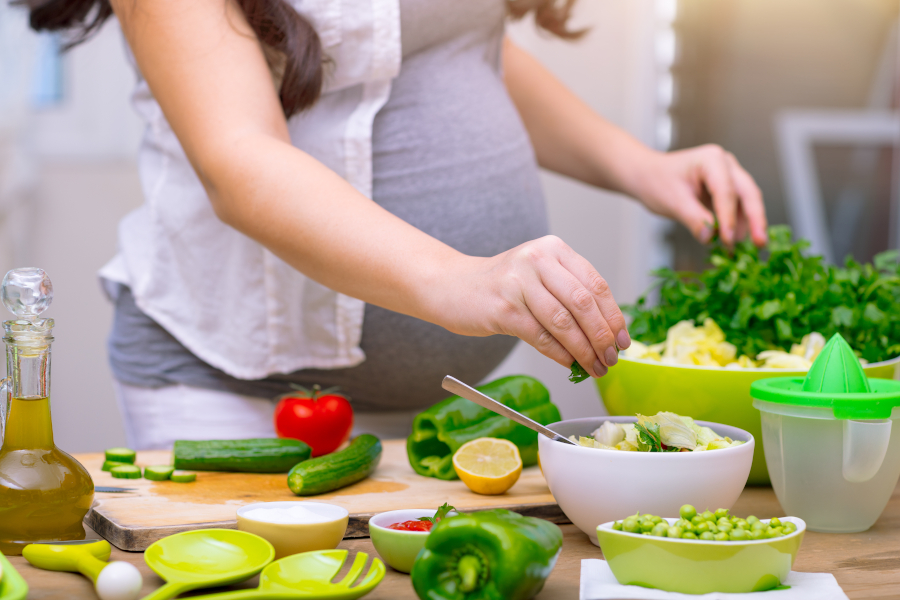
While moderate caffeine consumption is generally considered safe during pregnancy, excessive intake should be avoided. Current guidelines from the American College of Obstetricians and Gynecologists (ACOG) and say that it is safe for pregnant women to consume up to 200 milligrams (mg) of caffeine a day (the equivalent of one 12-ounce cup of coffee). More than that may slightly increase the risk of miscarriage, though the existing evidence is inconclusive. If you are not a coffee drinker understand that other beverages may contain caffeine.
Keep in mind that caffeine is also found in chocolate and soda. You do not have to completely give up caffeine, you will want to be aware of your caffeine intake.
Alcohol should be completely avoided during pregnancy. Consuming alcohol during pregnancy can lead to a range of fetal alcohol spectrum disorders (FASDs). Fetal alcohol syndrome (FAS) is the most serious of the fetal alcohol spectrum disorders and encompasses a range of mental, physical, and behavioral problems that babies develop when their mothers drink heavily during pregnancy. It is best to err on the side of caution and abstain from alcohol throughout pregnancy.
It is essential to thoroughly wash fresh fruits and vegetables to remove any potential traces of dirt, pesticides, or harmful bacteria. Unwashed produce can carry bacteria such as salmonella and E. coli, which can lead to foodborne illnesses. Proper washing and handling practices of fresh fruits and vegetables help minimize these risks.
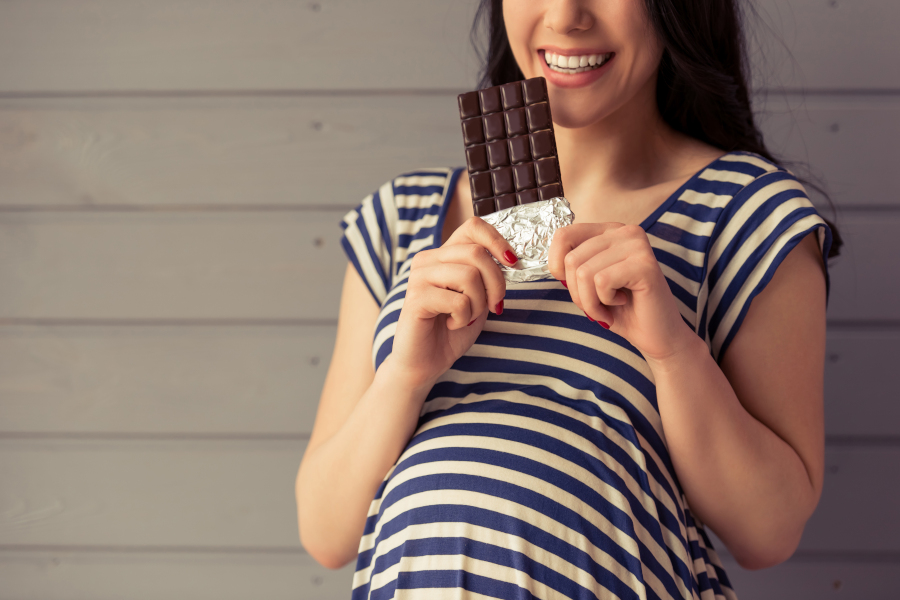
While most artificial sweeteners are considered safe in moderation, some studies have suggested potential risks associated with high intake during pregnancy. It is advisable to limit the consumption of artificial sweeteners and opt for natural sweeteners like honey or stevia instead.
Highly processed foods, including fast foods, snacks, and pre-packaged meals, often contain high levels of sodium, added sugars, and unhealthy fats. According to the Dietary Guidelines for Americans established by the Department of Agriculture (USDA) and the Department of Health and Human Services (HHS), the recommendation for daily salt intake is up to about a teaspoon of salt a day — that is 6 grams of salt, or less than 2,300 milligrams (mg) of sodium. These foods lack essential nutrients and can contribute to excessive weight gain and other health issues during pregnancy. Cook at home. It's important to try to eat more homemade meals, since food cooked at home has less salt than processed foods and snacks or food cooked in a restaurant.
Maintaining a healthy and balanced diet during pregnancy is crucial for the well-being of both the mother and the developing baby. While the list of foods to avoid may seem extensive, it is important to remember that these precautions are taken to minimize potential risks and ensure a safe pregnancy. Consult with your healthcare provider for personalized dietary recommendations and focus on consuming a variety of nutrient-dense foods to provide the essential vitamins, minerals, and nutrients required for a healthy pregnancy and baby. By making informed choices and practicing good food safety habits, you can optimize your nutrition and set the stage for a healthy start to parenthood.
The information is presented as a general guide to present information regarding concerns about pregnancy and nutrition. It is for informational purposes only. The information provided is not intended to be the only information available about concerns of pregnancy and nutrition. The material provided is not expected to be a substitute for advice or information from your physician or health care provider.
If you have any questions, concerns, apprehensions, unease, or worry about pregnancy and nutrition contact your health care provider immediately.
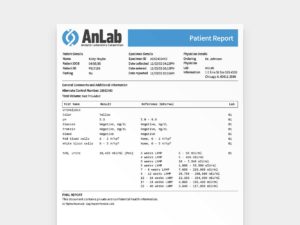
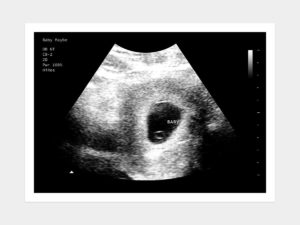
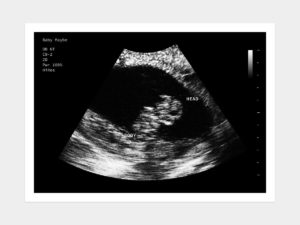
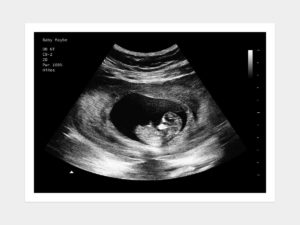
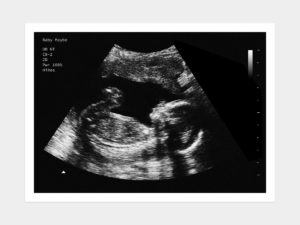
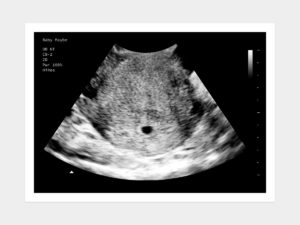


ALL WARRANTIES OF ANY KIND WHATSOEVER EXPRESS, IMPLIED, AND STATUTORY, ARE HEREBY DISCLAIMED. ALL IMPLIED WARRANTIES OF MERCHANTABILITY AND FITNESS FOR A PARTICULAR PURPOSE ARE HEREBY DISCLAIMED. THE PRODUCTS SOLD, INCLUDING SONOGRAMS, ULTRASOUNDS, FAKE PREGNANCY DOCUMENTS, AND FAKE PREGNANCY TESTS ARE SOLD ‘AS IS’ BASIS.
THE SITE CANNOT AND DOES NOT CONTAIN [MEDICAL/ LEGAL/ FITNESS/ HEALTH/ OTHER] ADVICE. THE INFORMATION IS PROVIDED FOR PRANKS PURPOSES ONLY AND IS NOT A SUBSTITUTE FOR PROFESSIONAL ADVICE.
ACCORDINGLY, BEFORE TAKING ANY ACTIONS BASED UPON SUCH INFORMATION, WE ENCOURAGE YOU TO CONSULT WITH THE APPROPRIATE PROFESSIONALS. WE DO NOT PROVIDE ANY KIND OF MEDICAL/ LEGAL/ FITNESS/ HEALTH ADVICE. THE USE OR RELIANCE OF ANY INFORMATION CONTAINED ON THIS SITE, OR OUR MOBILE APPLICATION, IS SOLELY AT YOUR OWN RISK.
THIS WEBSITE DOES NOT PROVIDE MEDICAL ADVICE. THE INFORMATION, INCLUDING BUT NOT LIMITED TO, TEXT, GRAPHICS, IMAGES AND OTHER MATERIAL CONTAINED ON THIS WEBSITE ARE FOR PRANK PURPOSES ONLY. NO MATERIAL ON THIS SITE IS INTENDED TO BE A SUBSTITUTE FOR PROFESSIONAL MEDICAL ADVICE, DIAGNOSIS OR TREATMENT. ALWAYS SEEK THE ADVICE OF YOUR PHYSICIAN OR OTHER QUALIFIED HEALTH CARE PROVIDER WITH ANY QUESTIONS YOU MAY HAVE REGARDING A MEDICAL CONDITION OR TREATMENT AND BEFORE UNDERTAKING NEW HEALTH CARE REGIMEN, AND NEVER DISREGARD PROFESSIONAL MEDICAL ADVICE OR DELAY IN SEEKING IT BECAUSE OF SOMETHING YOU HAVE READ ON THIS WEBSITE.
THE PARTIES AGREE THAT ANY PRODUCT PURCHASED ON THE BABY MAYBE WEBSITE SHALL NOT BE USED FOR ANY PROPOSE OTHER THAN AS A PRANK. WITHOUT EXCEPTION NO BABY MAYBE PRODUCT SHALL BE PROVIDED/SUBMITTED TO ANY GOVERNMENTAL OR OTHER AGENCY, MEDICAL DOCTOR, ARBITER OF A DISPUTE, AS PROOF OF PREGNANCY, PAST OR CURRENT, OR TO CLAIM ANY BENEFIT FOR WHICH A PREGNANT WOMAN MAY BE ELIGIBLE, OR ENTITLED TO RECEIVE, BASED ON HER BEING PREGNANT. NO HIPAA PROTECTED PATIENT HEALTH INFORMATION CONNECTED TO ANY BABY MAYBE PRODUCT, IS INTENDED, OR CONVEYED, WITH RESPECT TO THIS SALE.
THE PARTIES AGREE THAT BABYMAYBE IS NOT RESPONSIBLE FOR ANY LIABILITY WHATSOEVER FOR DELAYS IN SHIPPING THE PRODUCT. THE PARTIES FURTHER AGREE THAT THE SOLE REMEDY FOR ANY SHIPPING DELAYS IS THE REFUND OF THE PURCHASER’S PAYMENT FOR THE PRODUCT.
THE PARTIES AGREE THAT THE FORUM FOR ANY LEGAL ACTION ASSOCIATED WITH THE SALE AND PURCHASE OF THE PRODUCT IS THE STATE OF ILLINOIS.